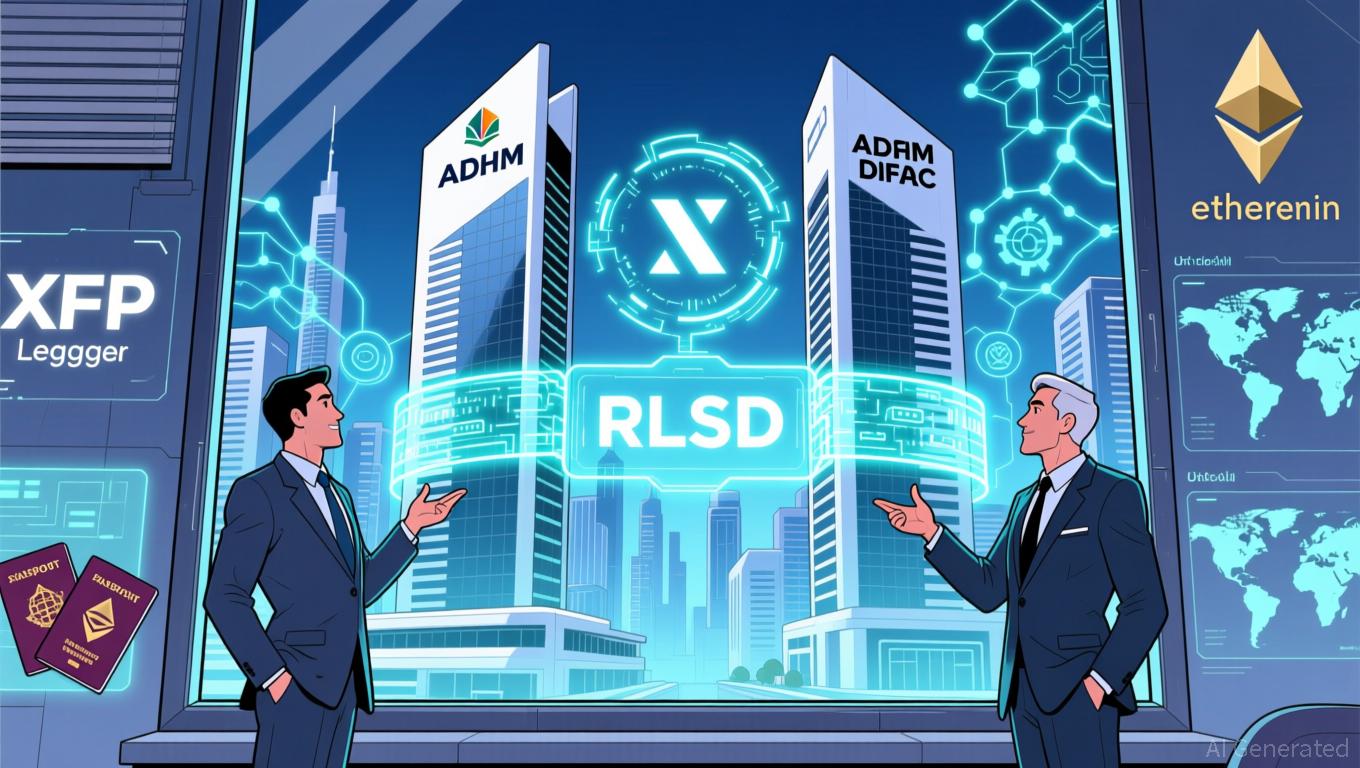Switzerland's Postponement of Crypto Tax Highlights Worldwide Regulatory Stalemate
- Switzerland delays crypto tax data sharing until 2027 due to ongoing political negotiations over OECD CARF partner jurisdictions. - Revised rules require crypto providers to register and report client data by 2026, but cross-border data exchange remains inactive until 2027. - Global alignment challenges exclude major economies like the U.S., China, and Saudi Arabia from initial data-sharing agreements. - Domestic legal framework passed in 2025, but partner jurisdiction negotiations delay implementation u
Switzerland will not start sharing cryptocurrency tax information with foreign authorities until 2027, even though the legal framework is scheduled to be in force from January 2026, according to the Federal Council’s announcement on Wednesday. The postponement is due to ongoing political discussions to determine which partner countries will be included under the OECD’s Crypto-Asset Reporting Framework (CARF). These new regulations are designed to subject crypto assets to the same international tax transparency requirements as traditional financial accounts, but their rollout depends on resolving cross-border coordination challenges.
The updated ordinance, which received approval from the Federal Council, requires crypto service providers to register, conduct due diligence, and report client information if they have substantial ties to Switzerland. These obligations are consistent with the OECD’s 2023 AEOI standards for crypto assets, which

This postponement highlights the broader difficulties in achieving global consistency for crypto tax regulations. Switzerland intends to exchange information with 74 jurisdictions—including all EU countries, the UK, and most G20 members—but the U.S., China, and Saudi Arabia are not included at this stage due to either non-adherence to CARF or the absence of reciprocal agreements. Since 2024, the Federal Council has been in talks with 111 jurisdictions, but full mutual alignment has yet to be reached. For crypto businesses, the revised regulations introduce a transition phase: service providers must comply with new requirements by 2026, even though data sharing will not begin until 2027.
The postponement illustrates the challenges major economies face in synchronizing crypto transparency measures. Switzerland’s domestic AEOI legal framework was passed by the Federal Assembly in 2025, but parliamentary discussions regarding partner countries will not finish until 2026. This delay highlights the difficulty of balancing strict regulation with diplomatic considerations in the crypto industry. Meanwhile, the OECD’s expanded AEOI program, which builds on existing financial account reporting standards, has been adopted by more than 100 countries, marking a move toward coordinated global crypto tax oversight.
Disclaimer: The content of this article solely reflects the author's opinion and does not represent the platform in any capacity. This article is not intended to serve as a reference for making investment decisions.
You may also like
XRP News Today: With Tether and USDC under examination, RLUSD from the UAE stands out as a regulatory-compliant stablecoin option.
- Ripple's RLUSD stablecoin received ADGM approval as a regulated fiat-referenced token in Abu Dhabi, enabling institutional use in payments and treasury management. - Pegged 1:1 to the USD with NYDFS oversight, RLUSD ($1.2B market cap) offers compliance-driven alternatives to USDT/USDC amid global regulatory scrutiny. - UAE's ADGM-DIFC regulatory framework positions the region as a crypto innovation hub, with Ripple expanding partnerships through Zand Bank and Mamo fintech . - The approval aligns with UAE

ZK Atlas Enhancement: Driving Institutional Embrace Amid the Blockchain Scalability Competition
- ZKsync's Atlas Upgrade solves throughput bottlenecks with Airbender RISC-V zkVM, enabling 15,000+ TPS at $0.0001 per transaction. - Modular ZKsync OS reduces gas fees by 70% since 2023, enabling real-time financial applications while maintaining regulatory compliance. - Deutsche Bank and UBS test ZKsync for asset tokenization, highlighting its institutional appeal through privacy-preserving ZK features and sub-second finality. - Upcoming Fusaka upgrade aims to push TPS to 30,000 by December 2025, but reg

Bitcoin Updates: Bitcoin Receives Major-Cap Status as Nasdaq Increases Options Limits Fourfold
- Nasdaq seeks SEC approval to quadruple IBIT options limits from 250,000 to 1 million contracts, aligning Bitcoin ETF with high-liquidity assets like EEM and GLD . - The proposal cites IBIT's $86.2B market cap, 44.6M daily shares traded, and industry support for addressing institutional demand amid Bitcoin's rapid financial instrument maturation. - Experts argue higher limits will reduce spreads, enable sophisticated hedging, and treat Bitcoin as a "mega-cap asset," while Nasdaq also seeks unlimited FLEX

XRP Update: ADGM's Green Light for RLUSD Strengthens UAE's Pursuit of Digital Financial Growth
- Ripple's RLUSD stablecoin secured ADGM approval as an institutional fiat-backed token in November 2025, following DIFC's June 2025 greenlight. - The UAE's dual regulatory endorsements position RLUSD for cross-border settlements, with $1.2B market cap driven by institutional demand for collateral and treasury tools. - ADGM's stringent oversight framework requires full reserve backing and AML compliance, aligning RLUSD with global standards under NYDFS charter . - XRP prices surged 24% in late 2025 amid $1
